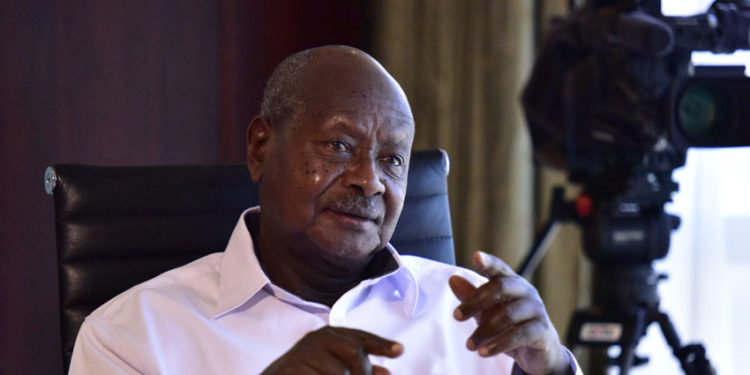In the early 1990s, the buzzword was a new breed of African leaders who had been anointed by the west and heralded to transform their countries. President Museveni was a poster boy for this wave of euphoria that was sweeping across the continent. After several decades in power, there is an extraordinary consensus that has sharply divided opinion in the West.
Over the past few years, a section of academia, human rights and lobby groups in the West have presented a damning indictment against President Museveni’s government: autocratic and totalitarian rule of an individual who has maintained a tight grip on power by pocking a few eyes and bloodying a few disjointed noses.
So why has the West put up with President Museveni whose once-promising and rosy characterisation has morphed into that of a tinpot dictator in their very eyes? President Museveni and the West are like a married couple who cannot live happily together yet cannot live apart. Their marriage is sustained and nourished by mutual interests rather than a romantic attachment. It’s akin to a relationship between two partners who are incompatible in many respects yet are welded indissolubly together.
In this way, the interests of the West and President Museveni have become inextricably intertwined. The West has overlooked many his governance scorecard as long as he kept safeguarding her interests in the Great Lakes region. And so, it has always been a relationship contingent on interests rather than high ideals of democracy. Over the years, President Museveni has cemented himself as a hegemon and a bulwark of stability of the African Great Lakes – a volatile region that remains important on the radar of geopolitics and foreign policy of the West.
President Museveni has fairly pacified Somalia by contributing the bulk of troops for the African Union peacekeeping Mission in Somalia (AMISOM) and in return, the US has bankrolled his army.
He has saved President Salva Kiir government from plunging into collapse and created a semblance of order necessary to end the political deadlock that had the potential to make the region a conflict hot spot. He negotiated the behind the scenes deal of Democratic Republic of Congo’s peaceful change of government and above all positioned Uganda as a haven and role model for refugees even when in some circles, he is increasingly viewed as more of an arsonist than a firefighter.
It’s this odd sort of relationship that the West frequently maintains with President Museveni and recognizes that they need each other for key priorities, and cooperation on a wide variety of foreign-policy issues stretching from the South Sudan question to the Al-Shabab to the stability of the Great Lakes region.
But at the same time, they deeply hate each other, reprimand and admonish each other publicly, and fight bitterly. The West scolds his government over the shrinking of political and civic space, harassment of the opposition and generally abuse of civil liberties. President Museveni chastises the West for meddling in the internal politics of a sovereign nation.
Despite being a relationship built on many contradictions, President Museveni has skilfully maintained it to his advantage while at the same time aiding the West to expand its foreign policy tentacles without resorting to gunboat diplomacy. So, the West gives Uganda a staggering amount of money to finance its budget deficits and stock its arsenal. The US alone, Uganda’s most important donor with total budget assistance exceeding $970 million per year.
The west harangues President Museveni by offering sermonizing lectures on human rights and presenting a litany of sins by his government while at the same time remaining his biggest benefactor. The EU and US embassy will issue condemnatory platitudes on irregularities in the recently held elections but will be quick to endorse his Presidency and move forward.
There seems to be a trade-off. The West overlooks President Museveni’s human rights record and continue to see him as a tool in its larger geo-political chess game rather than a tinpot dictator who is loathed at home. It is likely that this relationship is will remain intact as long as President Museveni is still a too important, too strategic, and too consequential ally to the West.
President Museveni thinks he is too indispensable for the West creating the assumption of a certain level of West’s obsession with him. He knows he will ditch the West for Russia and China the moment bad blood starts to manifest in this marriage. And the West knows reprimanding him may force him to look further to the East (Russia and China).
What is clear now, is that, as long as the West still view him as the only person to guarantee their perennial interests, President Museveni’s craftsmanship to delicately balance these interests and navigate the intricacies of this relationship won’t lose its appeal and persuasive power.
Do you have a story in your community or an opinion to share with us: Email us at editorial@watchdoguganda.com













